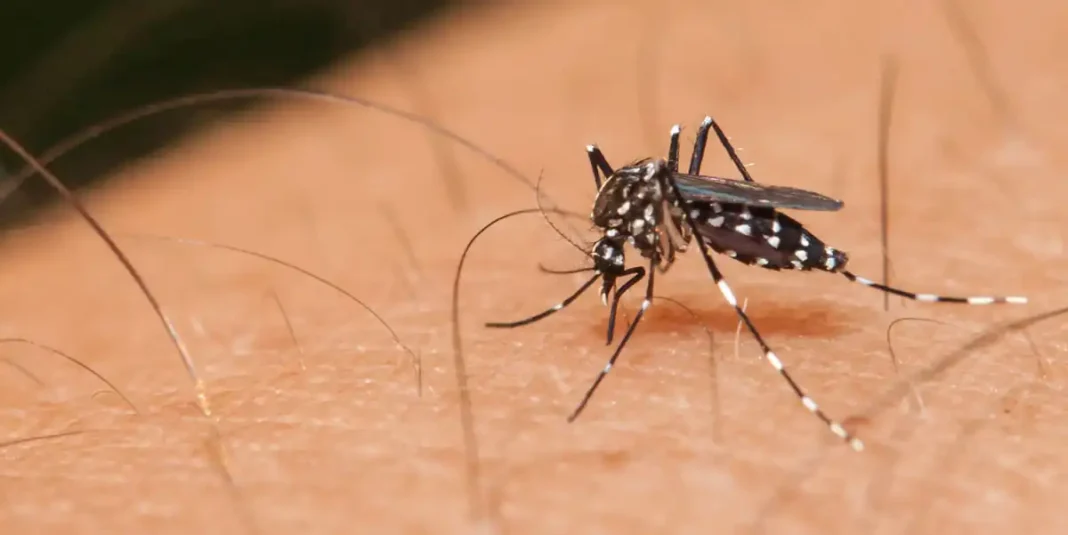Dengue fever is making an alarming entrance into mainland France, with a significant increase in indigenous cases reported this season.
According to a bulletin from French Public Health (SPF) released on October 16, a total of 78 people have contracted the tropical disease since May 1, marking a record high for locally transmitted infections.
These cases, which do not stem from travel to endemic regions, are attributed to bites from local mosquitoes that have fed on infected individuals returning from areas like the French Caribbean.
Dengue fever, caused by the dengue virus, is primarily transmitted through the Aedes albopictus mosquito, commonly known as the tiger mosquito.
Symptoms typically include a high fever, severe headaches, nausea, and vomiting, lasting two to three weeks. While fatalities are rare, the risk of severe illness increases with a second infection, heightening concerns among health authorities.
This surge in cases has raised alarms, although experts caution that it does not yet constitute an epidemic. The previous record for indigenous cases was set in 2023, with only 66 cases reported throughout the entire mosquito season, which extends from May to November.
Frédéric Simard, a research director at the French National Research Institute for Sustainable Development (IRD) in Montpellier, warned, “It’s still possible to reach 100 cases this year.” He emphasized that large outbreaks could still occur as the mosquito season nears its end.
The prospect of a dengue epidemic is not far-fetched. A report from the French Agency for Food, Environmental and Occupational Health & Safety (ANSES) published in September estimated the probability of an epidemic occurring within the next five years to be between 6 and 7 on a scale of 0 to 9.
This assessment applies not only to dengue but also encompasses all arboviral diseases, which are caused by viruses transmitted through arthropods.
As a result, experts are also concerned about the potential for Zika or chikungunya outbreaks, particularly as an indigenous case of chikungunya was reported in mid-July.
Localized outbreaks have been documented, with health officials noting “several episodes of indigenous transmission, simultaneous or not, and with no epidemiological link,” as defined by ANSES. Since the beginning of May, 10 outbreaks have been reported, affecting between one and 25 individuals each.
The most significant outbreak occurred in La Crau, in southeastern France, where 25 residents fell ill in just one month during the height of summer.
As the situation unfolds, health authorities are monitoring mosquito populations and potential transmission rates closely.
Public health campaigns to educate residents about prevention measures, such as eliminating standing water where mosquitoes breed and using repellent, are crucial to managing the spread of the virus.
While the current situation does not amount to an epidemic, the unprecedented rise in dengue cases in France serves as a reminder of the growing challenges posed by vector-borne diseases in a changing climate.
Health officials stress the importance of vigilance and preparedness as they navigate the complex dynamics of mosquito-borne illnesses, underscoring the need for continued research and public awareness to mitigate future risks.



